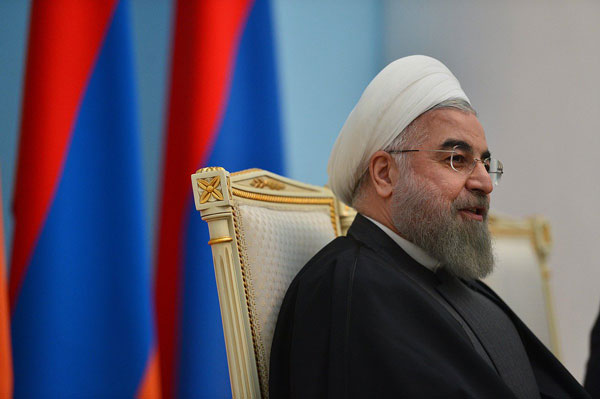
Tehran, Iran | AFP | The names may be unfamiliar but the services are immediately recognisable: Snapp is Iran’s answer to Uber, Digikala is its Amazon, and Pintapin its Booking.com.
US sanctions have protected the Islamic republic’s tech sector, barring Silicon Valley from profiting from one of the world’s most promising emerging markets, and giving a free run to domestic start-ups to recreate their services.
Even some Californian mumbo-jumbo has been imported: one booth at the Elecomp tech fair in Tehran this week claimed it was “Creating Artificial Mindfulness”.
But don’t dare call them copycats — transplanting a foreign business model to Iran is never straightforward.
“It’s not a matter of copying code line-by-line,” said Amirali Mohajer, the 32-year-old chief operating officer of Pintapin.
“You need local expertise that has to be built from the ground up, and it might need an entirely different business model to make it successful.”
His office sits alongside several other fast-growing start-ups in the offices of the Iran Internet Group (IIG), a haven of north Tehrani hipsterdom where the jeans are skinny, the headscarves loose, and 20-somethings sip espressos in glass meeting rooms.
Pintapin’s staff are not just building a website, they are transforming Iran’s entire hotel industry.
“Up until very recently, a lot of travel arrangements were done completely offline through phone calls and faxes and traditional models that really belong in the last century,” said Mohajer.
Half the company’s time is spent convincing hotels to give up pen-and-paper reservations and start automating their business.
Mohajer, who spent 16 years abroad in Britain and Canada, says he came back to Iran because it felt like a place where tech could have “an impact that actually matters”.
“We really believe we’re working towards creating Iran’s rightful place in the worldwide travel market… helping reconstruct an Iranian identity that’s been unfortunately damaged due to political issues.”
– ‘People love it’ –
Across town, the huge hangars, strip-lighting and shiny booths of the Elecomp tech fair could be anywhere.
It is growing rapidly: its start-up section had 80 hopefuls three years ago, now there are more than 400 — the usual mix of delivery apps, online shopping and games.
But global brands are almost entirely absent, the result of severe US sanctions that remain in place despite other countries lifting restrictions under a 2015 nuclear deal.
Some Iranians have found ways to profit from sanctions: one company at Elecomp buys Amazon products from the United States and ships them to Iranians for a small surcharge.
“People love it. There are many fake products in Iran. When they order from us, they get the real thing,” said its spokesman Hamid Tavakoli.
But isolation has been a very mixed blessing.
 The Independent Uganda: You get the Truth we Pay the Price
The Independent Uganda: You get the Truth we Pay the Price



